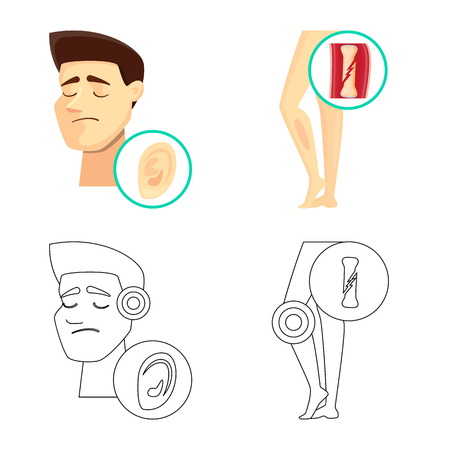1. Gentle Cleansers to Start Your Night Off Right
Begin your nighttime routine with a dermatologist-approved gentle cleanser that effectively removes dirt, oil, and makeup without stripping your skin’s natural moisture. A clean face sets the foundation for all the skincare products you apply afterward, helping them absorb better and work more efficiently.
Why Choose a Gentle Cleanser?
Harsh cleansers can disrupt your skins barrier, leading to dryness, irritation, or breakouts. Dermatologists recommend gentle cleansers because they clean thoroughly without causing damage, especially important for sensitive or acne-prone skin types.
Top Dermatologist-Recommended Gentle Cleansers
| Product | Skin Type | Main Benefits | Key Ingredients |
|---|---|---|---|
| CeraVe Hydrating Facial Cleanser | Normal to Dry | Cleanses without disrupting the skin barrier | Ceramides, Hyaluronic Acid |
| La Roche-Posay Toleriane Hydrating Gentle Cleanser | Sensitive, Normal to Dry | Soothes and hydrates while cleansing | Prebiotic Thermal Water, Niacinamide |
| Neutrogena Ultra Gentle Daily Cleanser | All Skin Types | Mild formula ideal for everyday use | Glycerin, Polyglyceryl-10 Laurate |
| Vanicream Gentle Facial Cleanser | Sensitive or Allergy-Prone Skin | Free of common irritants like fragrance and dyes | Aqua, Glycerin, Sodium Cocoyl Glycinate |
How to Use a Gentle Cleanser in Your Night Routine
Step-by-Step:
- Wet your face: Use lukewarm water to avoid shocking or drying out your skin.
- Apply cleanser: Gently massage a small amount into your skin using circular motions.
- Rinse thoroughly: Make sure all product is removed to prevent residue buildup.
- Pat dry: Use a soft towel—don’t rub—to avoid irritation.
Pro Tip:
If you wear heavy makeup or sunscreen, consider double cleansing. Start with an oil-based cleanser followed by one of the gentle options above to ensure a deep but non-irritating clean.
2. Targeted Treatments for Skin Concerns
After cleansing and applying toner, the next step in your night routine should focus on addressing any specific skin concerns you may have. This is where dermatologist-recommended serums or prescription treatments come into play. These products are formulated with active ingredients that target issues like acne, hyperpigmentation, fine lines, and uneven texture.
Why Use Targeted Treatments at Night?
Nighttime is the best opportunity for your skin to repair itself. While you sleep, your skin goes into recovery mode, making it an ideal time to use powerful treatments that may be too intense for daytime use. Many dermatologists recommend incorporating these targeted solutions during your evening routine for maximum effectiveness.
Common Skin Concerns and Recommended Ingredients
| Skin Concern | Dermatologist-Recommended Ingredient | Product Type |
|---|---|---|
| Acne | Retinoids (like adapalene), Salicylic Acid, Benzoyl Peroxide | Treatment gel or serum |
| Hyperpigmentation | Vitamin C, Niacinamide, Azelaic Acid, Hydroquinone (prescription) | Brightening serum or cream |
| Fine Lines & Wrinkles | Retinol, Peptides, Hyaluronic Acid | Anti-aging serum or night cream |
How to Apply Targeted Treatments
Start with clean, dry skin after toning. Apply a small amount of your treatment product to the affected areas—this could be just a spot treatment for acne or a full-face application for anti-aging or brightening purposes. Wait a minute or two before layering other products like moisturizers to allow the active ingredients to absorb fully into the skin.
Pro Tips:
- If youre new to retinoids, start by applying them 2–3 times a week and gradually increase frequency as your skin builds tolerance.
- Always follow up with a gentle moisturizer to avoid irritation from potent actives.
- If using multiple treatments, consult with a dermatologist to ensure compatibility and avoid over-exfoliation.
Targeted treatments can make a huge difference in your overall skin health when used correctly and consistently. Choosing products that are backed by dermatologists ensures youre giving your skin the support it needs based on expert guidance.

3. Hydrating and Repairing Moisturizers
A good nighttime moisturizer is a must-have in any skincare routine, especially if youre looking to wake up with soft, healthy-looking skin. Dermatologists recommend using a moisturizer that works while you sleep to hydrate deeply and repair your skin’s natural barrier. At night, your skin goes into recovery mode, so it’s the perfect time to use products packed with nourishing ingredients.
Why Nighttime Moisturizers Matter
During the day, your skin faces stress from sun exposure, pollution, and makeup. At night, your body shifts into repair mode—this is when a rich, hydrating moisturizer can make a real difference. The right formula not only locks in moisture but also helps calm irritation and supports cell turnover.
Dermatologist-Recommended Ingredients to Look For
| Ingredient | Benefits |
|---|---|
| Hyaluronic Acid | Attracts and retains moisture for plump, hydrated skin |
| Ceramides | Help restore the skin barrier and prevent moisture loss |
| Niacinamide (Vitamin B3) | Reduces redness and supports overall skin health |
| Squalane | Lightweight yet deeply moisturizing, mimics natural oils |
| Peptides | Support collagen production and skin firmness overnight |
Top Picks Recommended by U.S. Dermatologists
- CeraVe PM Facial Moisturizing Lotion: Contains ceramides and niacinamide; non-comedogenic and great for sensitive skin.
- Neutrogena Hydro Boost Gel-Cream: Hyaluronic acid-rich formula for intense hydration without feeling heavy.
- La Roche-Posay Toleriane Double Repair Face Moisturizer: Packed with ceramides and prebiotics to help balance the skin microbiome.
- First Aid Beauty Ultra Repair Cream: Ideal for very dry or eczema-prone skin with colloidal oatmeal and shea butter.
- The Ordinary Natural Moisturizing Factors + HA: Budget-friendly option that delivers hydration with amino acids and fatty acids.
Tip from Dermatologists:
If your skin feels tight or flaky when you wake up, it may be a sign that your nighttime moisturizer isn’t hydrating enough. Don’t be afraid to layer a hydrating serum underneath or choose a richer cream during colder months.
4. Retinol and Anti-Aging Formulas
Retinol is one of the most recommended ingredients by dermatologists for nighttime skincare, especially when it comes to anti-aging. It helps boost cell turnover, smooth out fine lines, and improve skin texture over time. However, because retinol can be potent—especially for first-time users—it’s important to start slowly and follow up with a gentle moisturizer to prevent irritation.
Why Dermatologists Love Retinol
Retinol (a form of Vitamin A) works by accelerating skin renewal, which helps reduce the appearance of wrinkles, unclog pores, and even out skin tone. It’s a true multitasker in any night routine. Most dermatologists recommend starting with a low concentration (around 0.25% or 0.5%) two to three times a week before gradually increasing frequency as your skin builds tolerance.
Top Dermatologist-Recommended Retinol Products
| Product | Key Features | Best For |
|---|---|---|
| Neutrogena Rapid Wrinkle Repair Night Moisturizer | Contains retinol SA, hyaluronic acid, and glucose complex for deep hydration and anti-aging | Beginners looking for an affordable drugstore option |
| CeraVe Resurfacing Retinol Serum | Encapsulated retinol with ceramides and niacinamide to calm sensitive skin | Sensitive or acne-prone skin types |
| SkinCeuticals Retinol 0.5 Refining Night Cream | High-strength pure retinol with advanced delivery system for maximum efficacy | Experienced users aiming for visible results |
| The Ordinary Retinol 0.2% in Squalane | Gentle formula in hydrating squalane base; budget-friendly choice | First-time users on a budget |
| ROC Retinol Correxion Deep Wrinkle Night Cream | Clinically proven formula that reduces wrinkles and firms skin over time | Mature skin showing signs of aging |
Pro Tips for Using Retinol at Night:
- Always apply retinol on clean, dry skin.
- A pea-sized amount is enough for your entire face.
- Avoid using other active ingredients like AHAs or BHAs on the same night unless advised by a dermatologist.
- Follow with a nourishing moisturizer to lock in hydration.
- If youre new to retinol, use it only 2-3 times per week at first.
- Never forget sunscreen the next morning—retinol makes your skin more sensitive to UV rays.
Adding a dermatologist-recommended retinol product to your night routine can make a big difference in how your skin looks and feels over time. Just remember: consistency and patience are key when it comes to seeing real results from anti-aging formulas like retinol.
5. Derm-Approved Tips to Maximize Your Routine
Even the best dermatologist-recommended products can underperform if not used correctly. To make sure youre getting the most out of your night skincare routine, its important to focus on how you apply your products, when you use them, and what lifestyle habits support healthy skin.
Layering Products the Right Way
The order in which you apply your skincare products can make or break your routine. Dermatologists recommend applying products from thinnest to thickest consistency. This ensures that each product is properly absorbed and can do its job effectively.
| Step | Product Type | Purpose |
|---|---|---|
| 1 | Cleanser | Removes makeup, oil, and dirt |
| 2 | Toner (optional) | Balances pH and preps skin for treatment |
| 3 | Treatment Serums (e.g., retinol or vitamin C) | Targets specific concerns like wrinkles or dark spots |
| 4 | Moisturizer | Locks in hydration and seals previous layers |
| 5 | Eye Cream (optional) | Hydrates and treats delicate under-eye area |
| 6 | Occlusive (if needed) | Seals in all products, especially for dry skin types |
Timing Matters More Than You Think
Your skin absorbs products best when it’s clean and slightly damp. Apply skincare within a few minutes after cleansing to lock in moisture. Also, give each layer about 30–60 seconds to absorb before applying the next one—this helps avoid pilling and ensures better penetration.
Lifestyle Habits That Support Your Skin Overnight
Your nighttime routine doesnt stop at products. Certain habits can enhance your skins ability to repair while you sleep:
- Aim for 7–9 hours of quality sleep: Skin regenerates during deep sleep.
- Use a clean pillowcase: Wash it at least once a week to avoid bacteria buildup.
- Avoid late-night snacking: Especially sugary foods that can trigger inflammation.
- Stay hydrated: Drink water throughout the day to help maintain moisture levels overnight.
- Create a calm bedtime environment: Stress increases cortisol, which can lead to breakouts and dullness.
The Takeaway?
You don’t need a 10-step routine to get results—just smart product choices and good habits. By following these derm-approved tips, youll help your skin look healthier, smoother, and more radiant every morning.

